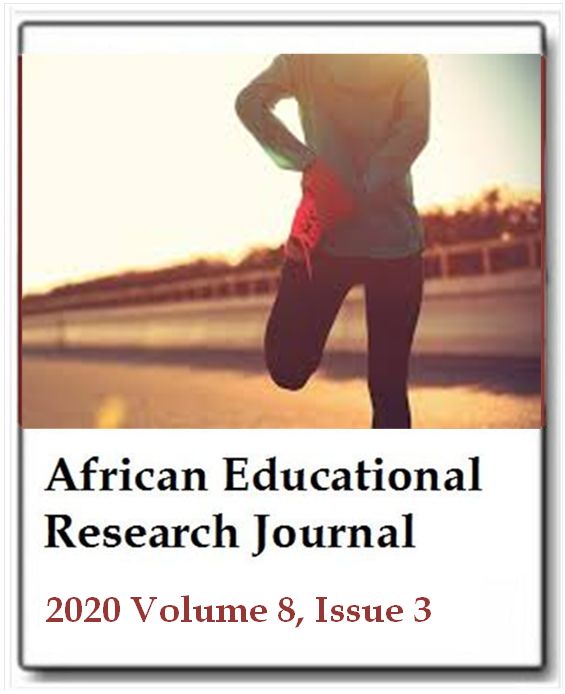Assessment of level of awareness and extent of utilization of innovative instructional strategies for teaching science in secondary schools in Kebbi State, Nigeria
Usman Musa, Salisu Mamuda and Aliyu Hassan KambaAfrican Educational Research Journal
Published: July 27 2020
Volume 8, Issue 3
Pages 491-498
DOI: https://doi.org/10.30918/AERJ.83.20.008
Abstract
The study examined level of awareness and extent of utilization of innovative instructional strategies by science teachers for teaching science in senior secondary schools in Kebbi State, Nigeria. The research is quantitative in nature, descriptive survey research design was adopted. A sample of 252 science teachers was drawn from all science teachers in public secondary schools in Kebbi State, Nigeria. The sample for schools was drawn using stratified sampling, while simple random sampling was used in the selection of science teachers. Questionnaire validated by experts was used as an instrument for data gathering. The reliability of the instrument was determined using test-retest method and an index of 0.76 was arrived at. Findings from the study revealed that 19 (67.86%) out of 28 innovative instructional strategies were not known by science teachers, while 5 (17.86%) were known but not utilized by the teachers. Similarly science teachers do not frequent libraries or browse the internet for current books, journals and other resources to update their knowledge on recent practices on teaching and learning science. The study recommends that Government should organize seminars, workshops and provide adequate sensitization to science teachers on awareness and utilization of innovative instructional strategies for effective teaching and learning science. Science teachers should be encouraged to visit libraries and also search the internet for current information and ideas on current practices on teaching and learning science.
Keywords: Awareness, utilization, innovative instructional strategies, teaching and learning science..
Full Text PDFThis article is published under the terms of the Creative Commons Attribution License 4.0

